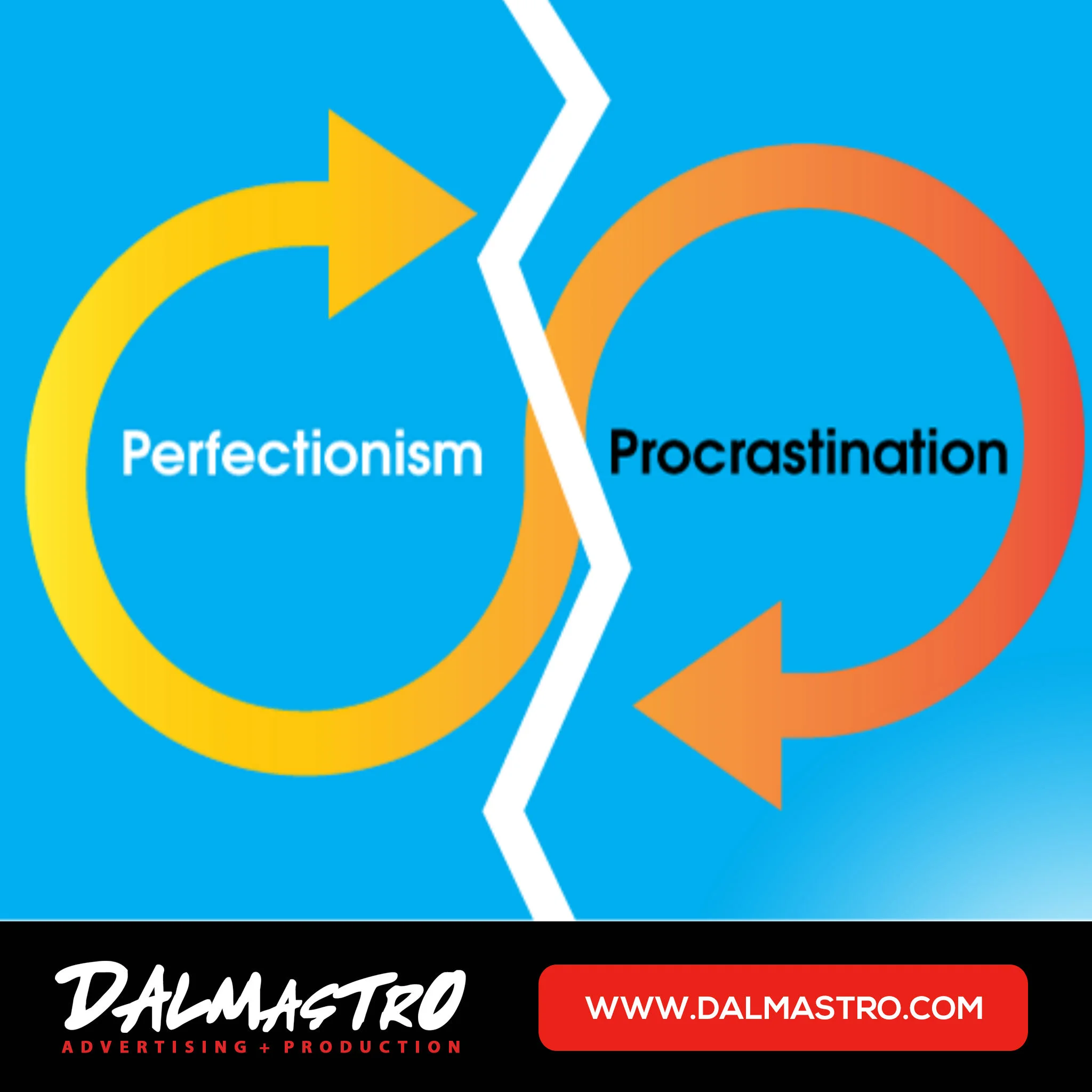We, content creators, often identify ourselves as perfectionists. Unfortunately, many of us not only see perfectionism as a desirable trait, but also as a worthy excuse to procrastinate, never feeling ready enough to release our work out into the world.
You get out of the meeting with your client, full of creative ideas and energy about what you’re going to do next. You commit to a deadline for ideas, a proposal, designs — some kind of deliverable to move the project forward. In your mind, at that moment, it’s all crystal clear and you can’t wait to work on it.
But as the date looms closer, something changes. You want it to be amazing, fantastic,flawless. Even though your vision is clear and your ideas solid, you keep delaying the start of the creative process. The excitement that you initially felt begins to feel like dread. “I have to do more research, gather more information, find more sources of inspiration before I start so it can be really good. I’ll get started tomorrow — I’ve got time,” you tell yourself.
Finally, it’s the day before the due date. You’re now kicking yourself for putting it off and your sense of self flags along with your motivation to act. And then it’s the due date. You’re now not only beating yourself up for potentially messing up a big opportunity, but also panicking and stressing to pull it together by the end of the day.
I’d like to introduce you the twins that just wreaked havoc upon your nerves and your work: perfectionism and procrastination.
Perfection Is Good?
Everyone knows that procrastination is bad. But perfectionism is fine, right? Wrong. Both are fraught with difficulty, and they tend to appear together, forming an infinite loop that can destroy your productivity and your psyche.
Of the two, perfectionism seems to be more subtle and difficult to identify. How do you determine whether you are of the perfectionism persuasion?
- Perfectionists tend to focus on product to the exclusion of the process, and those results better be successful.
- Despite often being high achievers, perfectionists’ feelings of satisfaction about achievement are temporary because they believe there is always more to do, be and accomplish.
- Perfectionists are their own harshest critics, frequently berating themselves over any small things that went wrong.
- Perfectionists tend to do things in fits and spurts, starting off gangbusters, only to collapse in exhaustion.
This unreasonable striving for perfection stems from attempts to preserve a sense of self-worth that hinges on the expectations of others. It is often referred to as “the highest form of self-abuse” because perfection simply doesn’t exist. More importantly, perfection is rarely necessary in day-to-day working and living (unless you are a brain surgeon).
The most pernicious reality of being a perfectionist is that perfectionists procrastinate.
Read Full Article













As videos become increasingly popular, they provide the perfect complement to online marketing. Regardless of whether the video is produced simply for fun, information or is intended to be instructional, videos play a critical role in any brand's marketing strategy.